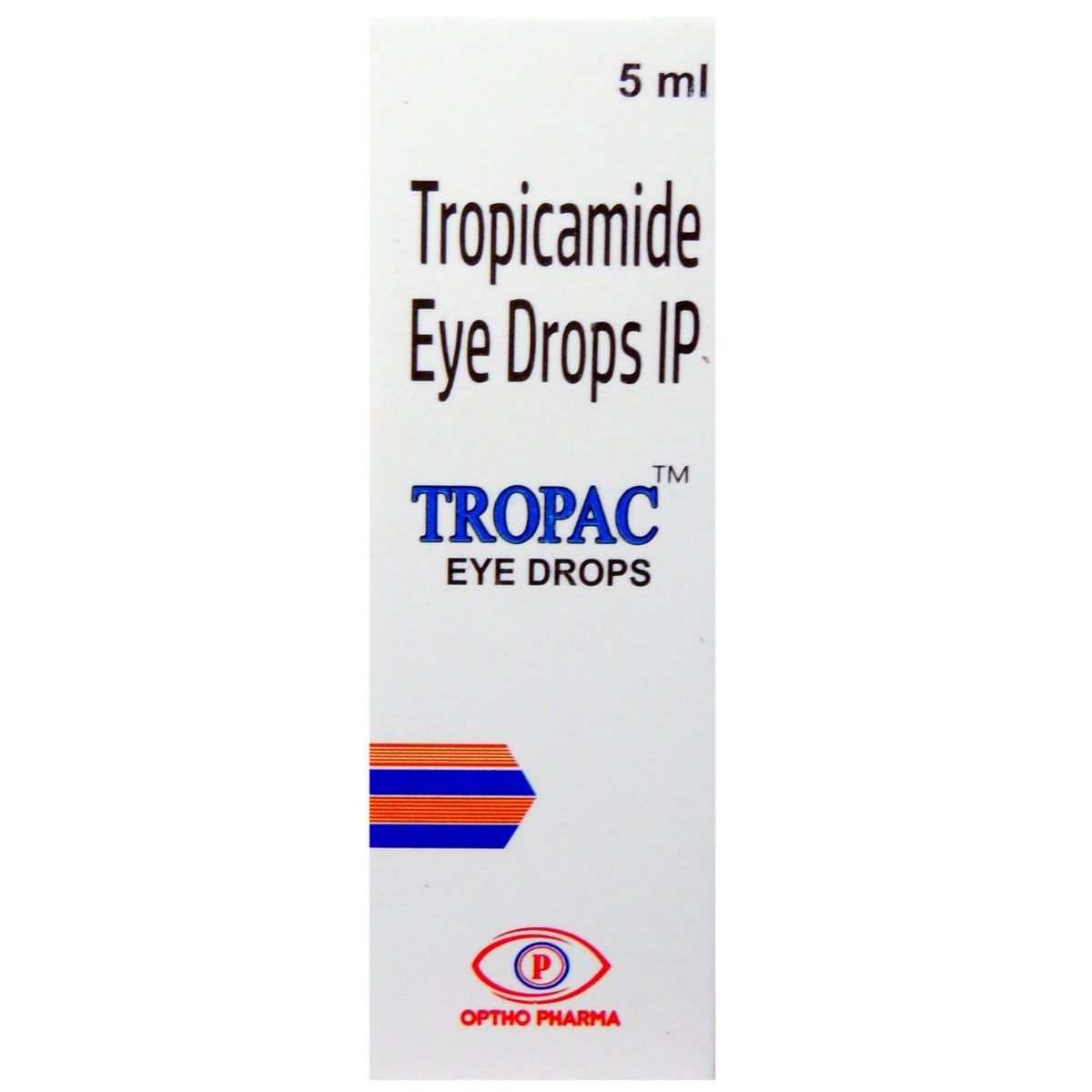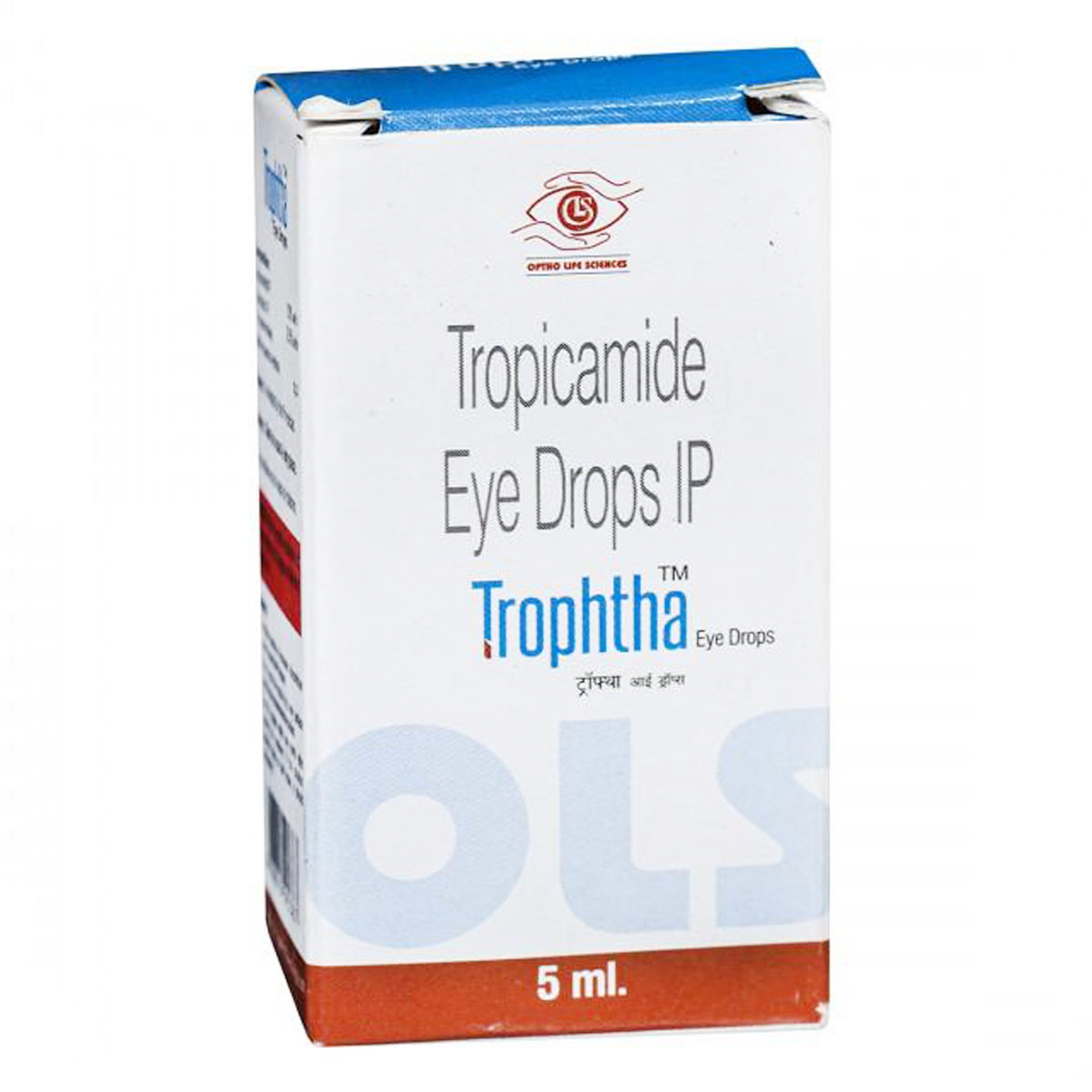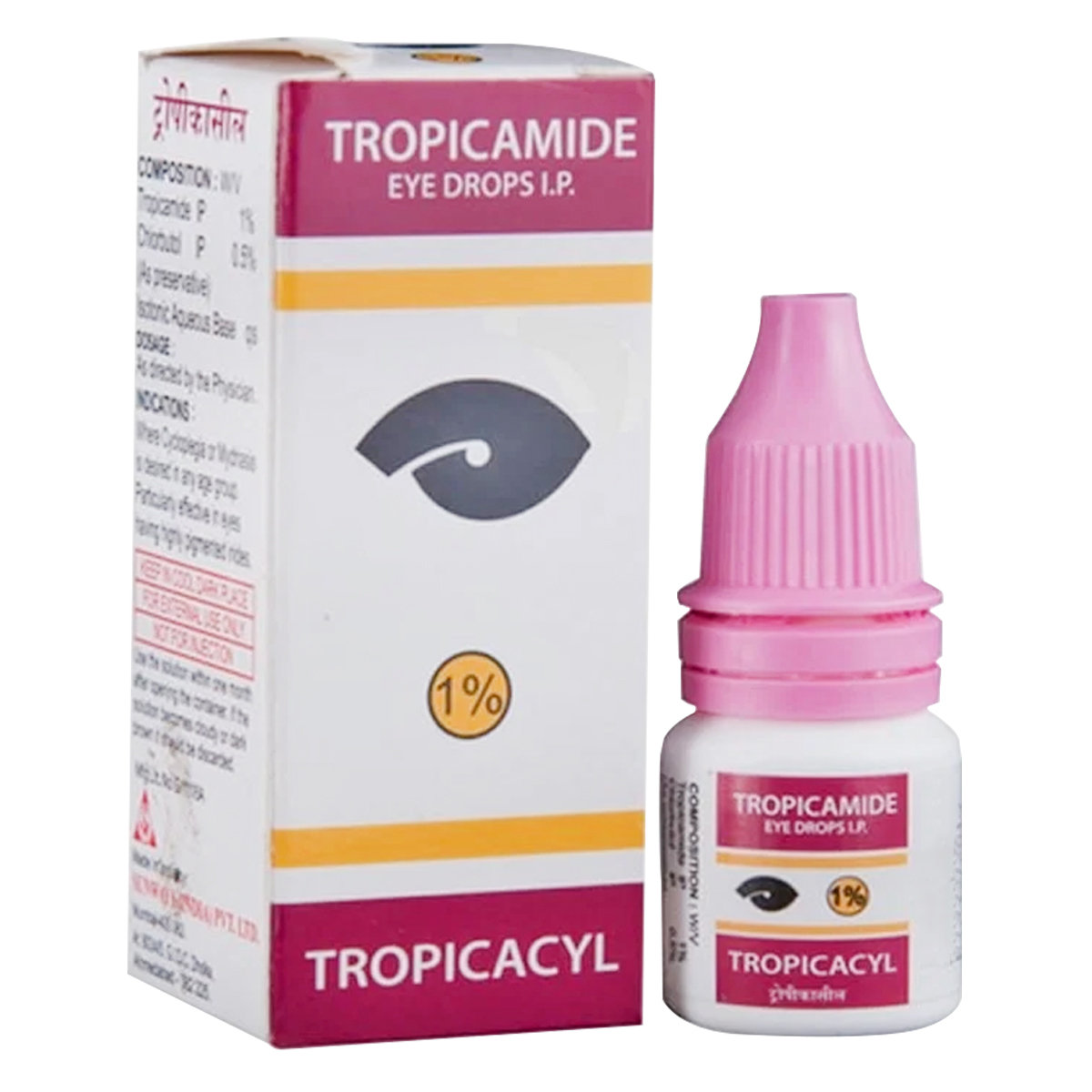Mydriasol Eye Drops 5 ml
MRP ₹56
(Inclusive of all Taxes)
₹8.4 Cashback (15%)
Provide Delivery Location
Online payment accepted
 Prescription drug
Prescription drugWhats That
Composition :
Manufacturer/Marketer :
Consume Type :
Expires on or after :
Return Policy :
About Mydriasol Eye Drops 5 ml
Mydriasol Eye Drops 5 ml belongs to the class of ‘anticholinergic and anti-muscarinic agents,’ primarily used to widen (dilate) the pupil for an eye examination or other diagnostic procedures. Mydriasol Eye Drops 5 ml is also used to treat uveitis. Uveitis is considered an inflammation of the middle layer of the eye called the uvea. Dilation of the pupil plays an important role in eye operative (intraocular) procedures like cataract (clouding of the lens of the eye) surgery to reduce complications during the operation and for better exposure of the cataract during surgery.
Mydriasol Eye Drops 5 ml contains ‘Tropicamide’ that belongs to the class of ‘Muscarinic Antagonists’ and ‘Mydriatics’ (that dilate pupils). Tropicamide is an anticholinergic agent that works by blocking muscarinic acetylcholine receptor activity (acetylcholine is a neurotransmitter that sends signals to nerve cells). This process further causes short-acting mydriasis (dilation of the pupil) and cycloplegia (temporary paralysis of the eye) that helps to properly examine different parts of the eye like the lens, vitreous humor, and retina.
Your doctor will advise the appropriate dose that suits your medical condition. Common side effects of Mydriasol Eye Drops 5 ml include blurry vision, dry mouth, eye sensitivity, and stinging sensation in the eyes. These side effects may not occur in every patient using this medication and differ individually. If the side effects persist longer or worsen, please seek a doctor’s advice.
Let your doctor know if you are sensitive to Mydriasol Eye Drops 5 ml or any other medications. Before using Mydriasol Eye Drops 5 ml, let your doctor know if you have liver, kidney, or heart diseases, eye diseases like glaucoma, high blood pressure, diabetes, and any other medical history. Mydriasol Eye Drops 5 ml may cause blurry vision, hence do not drive or operate machinery until you feel better. Avoid the contact of Mydriasol Eye Drops 5 ml dispensing containers with eyes, eyelids, fingers, and other surfaces to prevent contamination. A pregnant and breastfeeding woman should consult their doctor before using Mydriasol Eye Drops 5 ml.
Uses of Mydriasol Eye Drops 5 ml
Directions for Use
Key Benefits
Mydriasol Eye Drops 5 ml helps in the dilation of pupils for better observation of the structure of the eye. It contains ‘Tropicamide’ that belongs to the class of 'Muscarinic Antagonists’ and ‘Mydriatics.’ Mydriasol Eye Drops 5 ml is an anticholinergic agent that relaxes the eye muscles. It blocks the muscarinic acetylcholine receptor activity, causing short-acting mydriasis (dilation of the pupil) and cycloplegia (temporary paralysis of the eye). This dilation helps properly examine various eye parts like a lens, vitreous humor, and retina. Mydriatics like Mydriasol Eye Drops 5 ml can also be used in inflammatory eye conditions, such as iritis (inflammation of the colored part of your eye (iris)) and cyclitis (a type of uveitis that affects the ciliary body of the eye).
Storage
Drug Warnings
Inform your doctor if you have any history of liver or kidney diseases, glaucoma, overactive thyroid (hyperthyroidism), high blood pressure, diabetes, heart diseases (irregular heart rhythm, coronary artery disease), Down syndrome (a genetic disorder), brain damage, and spastic paralysis (spastic paralysis) in children before starting the medicine. Mydriasol Eye Drops 5 ml may cause blurry vision and make your eyes sensitive in daylight; hence do not drive or operate machinery until you feel better. Always use dark sunglasses when you step outdoors in daylight. After administering eye drops, press gently on the eyelid's inner corner for 3 minutes to prevent the solution from draining into the nose and throat and avoid systemic absorption, especially in children. Avoid the contact of Mydriasol Eye Drops 5 ml dispensing containers with eyes, eyelids, fingers, and other surfaces to prevent contamination. Let your doctor know if you plan to become pregnant or already pregnant and a nursing mother.
Drug-Drug Interactions
Drug-Drug Interactions
Login/Sign Up
Drug-Food Interactions
Drug-Food Interactions
Login/Sign Up
Diet & Lifestyle Advise
- Avoid or limit the intake of alcohol and caffeine.
- Manage stress, eat healthily, drink plenty of water, exercise regularly, and get plenty of sleep.
- Use dark sunglasses to protect your eyes from sensitivity to light when you step outdoors.
- Reduce screen time to avoid dryness of eyes and strain.
- Maintain proper lens hygiene, clean the lens weekly with lens solution and replace them monthly when a new bottle of lens solution is opened.
- Do not use expired makeup products around your eyes. Also, don’t share your makeup brushes and products with others.
Side Effects of Mydriasol Eye Drops 5 ml
- Blurry vision
- Dry mouth
- Dry eyes
- Eye sensitivity
- Stinging sensation in the eyes
- Increased pressure in the eye (which may cause headache)
- Psychotic reactions and behavioral disturbances (especially in children)
Habit Forming
Therapeutic Class
All Substitutes & Brand Comparisons
RX
Out of StockMeptrop Eye Drop
Mepfarma India Pvt Ltd
₹38
(₹6.84/ 1ml)
32% CHEAPERRX
TROPAC DROPS
Optho Remedies Pvt Ltd
₹44
(₹7.92/ 1ml)
21% CHEAPERRX
Tropicacyl Eye Drops 5 ml
Sunways (India) Pvt Ltd
₹46.5
(₹8.38/ 1ml)
16% CHEAPER
Author Details
We provide you with authentic, trustworthy and relevant information
Drug-Diseases Interactions
Drug-Diseases Interactions
Login/Sign Up
FAQs
Drug-Drug Interactions Checker List
- DIPHENHYDRAMINE
- MECLIZINE
- DICYCLOMINE
- QUINIDINE
- SELEGILINE
- LINEZOLID
- METHYLENE BLUE
- TRANYLCYPROMINE
- PHENELZINE
- PROCARBAZINE
- PILOCARPINE
- ACETYLCHOLINE
- ISOFLUROPHATE
- PHYSOSTIGMINE
Special Advise
- Regular check-up of your eyes with an ophthalmologist is recommended.
- It is advised to monitor your blood pressure and blood glucose levels regularly while using Mydriasol Eye Drops 5 ml.
Disease/Condition Glossary
Pupil dilation/Mydriasis: Eye care professionals use eye drops to dilate or widen the pupils to properly examine different eye parts like the lens, vitreous humor, and retina. Dilation of the pupil helps in eye operative procedures like cataract (clouding of the lens of the eye) surgery to reduce complications during the operation and for better exposure of the cataract during surgery. Dilation of pupils allows more light than the normal low light conditions to observe the eye's structure.
Uveitis: It is an inflammation of the middle layer of tissue in the eyewall called the uvea. Symptoms include eye redness, pain, and blurred vision.

Have a query?
Alcohol
Safe if prescribed
No interaction found/ established. Please consult your doctor before using Mydriasol Eye Drops 5 ml.
Pregnancy
Consult your doctor
It is advised to consult your doctor if you plan to conceive or already pregnant before starting Mydriasol Eye Drops 5 ml.
Breast Feeding
Consult your doctor
There are limited studies on how Mydriasol Eye Drops 5 ml affects breastfed infants. Please consult your doctor before taking Mydriasol Eye Drops 5 ml if you are breastfeeding. Caution is recommended.
Driving
Safe if prescribed
Mydriasol Eye Drops 5 ml may cause side effects like blurry vision, which could affect your ability to drive or operate machines. Some patients may also find it uncomfortable to drive in the bright daylight. Please do not drive or operate machines until you feel better.
Liver
Consult your doctor
Let your doctor know if you have any history of liver diseases or hepatic impairment. Your doctor will weigh the benefits and potential risks before prescribing Mydriasol Eye Drops 5 ml.
Kidney
Consult your doctor
Let your doctor know if you have any history of kidney diseases. Your doctor will weigh the benefits and potential risks before prescribing Mydriasol Eye Drops 5 ml.
Children
Safe if prescribed
Your doctor will decide the dose and duration based on your child’s age and medical condition.










